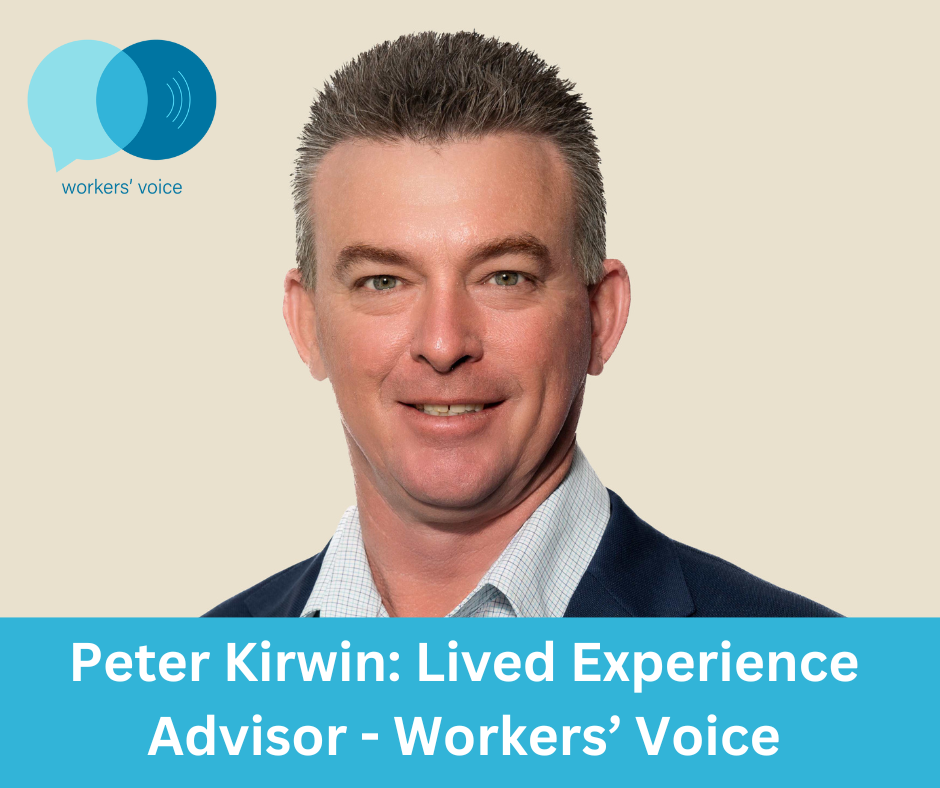The Workers’ Voice Study progress
We are now over half way through this three year study (completion in April 2026) with the following things accomplished so far:
Surveys
- Workers survey closed – analysis of answers is underway
- Key representatives (family/friends who support the worker who has an injury) survey closed – analysis is underway
Interviews
- Worker’s interviews – 20 have been completed and we are now analysing the information provided and identifying the themes that are emerging from these. Specifically we are looking at what supported people through their claims, what hindered them, and what solutions they identified for creating a better system in the future.
- Key representative’s interviews – 11 have been completed so far and we have nearly finished recruiting people for these. We are looking at people’s perspectives and ideas on solutions to create a better, kinder and fairer system. Analysis has begun.
Overall analysis – making sense of all the data given
We are at the beginning stages of looking at all the data we have so far. This includes the emails, personal stories, interview data and survey data sent through from you all. We are working at finding out what are the commonalities across all the various information received, and what solutions people have identified as ways to improve the system.
Computer Modelling of the system
We have been very busy in developing the computer model of the current system, and testing this with our Lived Experience Advisors, other researchers and people who work in the industry, to make sure we have a good representation of the general system (we understand it varies across jurisdictions as well).
System & process information that is understandable
We have begun collating a number of ‘easy to understand’ documents with the aim of providing information about the four different stages of the process, what might be required from the worker, and what could be expected next. These are being uploaded onto the Resources page as we have them completed, with the input from our Lived Experience Advisors as well.
Next steps:
We are beginning to plan the workshops for 2025 where we seek input from small groups of people with an injury and those who have supported them, to create a kinder, better, fairer re-imagined system. The new computer model will help us to test the specific solutions and ideas identified, and see what the result or outcome of this would be, for both workers and the system.
Ongoing analysis and collation of all the information sent through from people, to lead us to re-imagining a better, safer and fairer workers’ compensation system.
PIEF Conference
We are incredibly grateful to Peter Kirwin for his courage in sharing his journey at the PIEF Conference in Perth on Wednesday 30th October. His presentation, “Recovery Isn’t Linear – My Journey Back from Depression and Anxiety,” was a powerful reminder that the path to recovery is often a winding one. Peter’s openness about the ups and downs of his experience sheds light on the complex realities many face in their own mental health journeys.
Peter’s insights reveal how the interactions and events we encounter along the way can either support or hinder our progress. Through his work with the Workers’ Voice project, Peter continues to challenge stigma around mental ill-health and remind us all that recovery is as unique as the person undertaking it.
Thank you, Peter, for your vulnerability, strength, and commitment to educating and inspiring others. Your voice is helping to pave the way for more compassionate and supportive environments for those navigating their own journey.

Research on Australian Compensation Schemes
A recent qualitative study exploring “...Claimant distress in interactions with Australian compensation schemes…“ written by Sim, McNeilage, Rebbeck & Ashton-James (2024) from Sydney, sheds light on the sources of distress experienced by individuals recovering from compensable injuries within Australia’s compensation systems. Recognising the impact of claimants’ experiences on their recovery outcomes from both the claimant and clinician perspectives, this study seeks to inform nationwide strategies to improve compensation scheme interactions and reduce claimant distress.
Study Highlights: Interviews conducted with 13 claimants and 26 clinicians across four compensation schemes in five Australian states.
Identified four major sources of distress:
1. Complexity and delays in administrative processes.
2. Treatment delays that interrupt recovery.
3. Non-individualised care approaches.
4. Lack of support in navigating the claims process.
Implications:
The findings underscore an urgent need for systemic changes across compensation schemes to enhance the claimant experience, aiming to reduce distress and improve recovery outcomes.
By understanding both claimant and clinician perspectives, this study offers critical insights for developing cohesive, cross-scheme strategies that prioritise claimant wellbeing and streamline the claims process.
The research on claimant distress in Australian compensation schemes directly aligns with the goals of the Workers’ Voice project, which advocates for fairer treatment and improved support for injured workers navigating compensation processes.
🔗Read the full research article here.